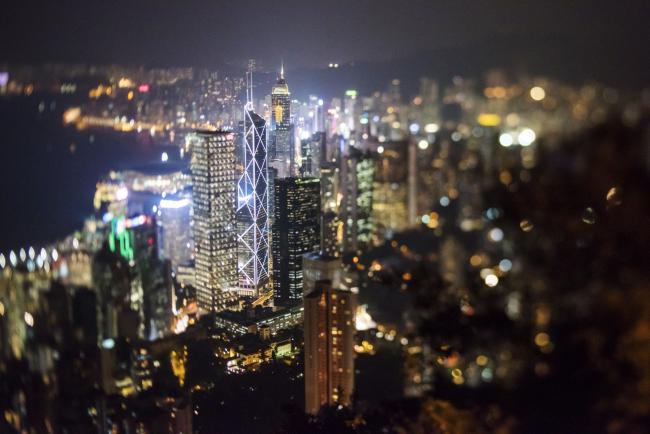(Bloomberg) -- Hong Kong stocks are poised for their worst quarter since 2015 and corporate earnings are unlikely to save them.
After a sell-off erased more than $600 billion from the city’s equities, attractive valuations stood as a potential bright spot. But those multiples don’t look so good when analysts keep slashing their profit forecasts for 2019. Their call for an average 19% slump in operating income would be the biggest contraction for Hang Seng Index companies since the global financial crisis, data compiled by Bloomberg show.
While a protracted U.S.-China trade war and a weak yuan are to blame for a big chunk of the profit reductions, the latest cuts reveal a deeper issue. With Hong Kong’s slowing economy buckling under the pressure of 11 straight weeks of protests, demand for everything from bank loans to utility gas may be jeopardized.
“The third quarter could be even worse given the local political situation and the trade war escalation,” said Jackson Wong, asset management director at Amber Hill Capital Ltd. “Potential downside surprises have not been fully reflected in share prices."
Shares of utilities provider Hong Kong and China Gas Co. fell 5.3% Wednesday after it posted disappointing results and said the local business environment is “full of challenges.” Political unrest in Hong Kong may dampen its sales to the hospitality industry as people opt to cook at home rather than dine out, analysts at Daiwa Securities Group Inc. say.
Cathay Pacific Airways Ltd. said late Wednesday the protests will have a “significant impact” on revenue from August. The airline, which saw its employees’ participation in the Hong Kong protests draw the ire of Beijing, said business and leisure traffic into the city has weakened “significantly.”
The threat from the trade war and weeks of local unrest has been apparent in the property market, as well as hotel occupancy and retail sales. CK Asset Holdings Ltd., whose shares fell to lowest since January 2017 last week, postponed a luxury residential project because of the protests. It spent about $3.3 billion buying British pub owner Greene King Plc.
HSBC Holdings Plc (LON:HSBA) and BOC Hong Kong Holdings Ltd. have lost about 9% this month as investors become increasingly concerned about capital flight.
A weak yuan is also bad news for the Hang Seng Index: its firms get an average 64% of revenue from the mainland, and 22% from Hong Kong, Morgan Stanley (NYSE:MS) calculates. The currency broke past the key 7 per dollar this month for the first time since 2008, and has traded weaker than that level for more than two weeks.
The gloomy profit outlook comes at a critical time for Hong Kong’s equity market. While cheap valuations spurred some dip-buying this week, strategists at Morgan Stanley and Credit Suisse (SIX:CSGN) Group AG are among those turning more bearish. The Hang Seng Index is still down 13% since its April high, one of the worst returns in the world.
“I don’t know when earnings will turn around,” said Amber Hill’s Wong. “For that to happen, we at least need a stable political environment in Hong Kong and an agreement to end the trade war."
(Adds Cathay outlook in sixth paragraph, CK Asset purchase in seventh paragraph.)
